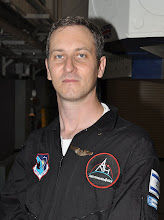Today is October 10th 2010 or in it's more serene form, 10/10/10. Take the delimiters out and you get 101010, or 42 in binary which is of course the famous
Answer to the Ultimate Question of Life, the Universe, and Everything, as written over 30 years ago by
Douglas Adams. In Roman numbers we're looking at XXX, a term originating from over 40 years ago in relation to movies (
X-rating). On the internet,
#101010 is a very dark shade of gray.
This is, of course, not the first time the 10/10/10 date happened. 10/10/10 can designate 1910, 1810, and any century before that. If you're one of the people wearing
this shirt ("There are 10 types of people in the world: Those who understand binary and those who don't") you'd be probably even more excited a thousand years ago on 10/10/1010 (albeit you wouldn't be able to blog or tweet about it...). Interestingly, October 10th 1010 was actually an ordinary Wednesday noted as October 4th in Europe, as the
Julian calendar was still used rather than the
Gregorian calendar, created in 1582 but adopted by some countries as late as the 20th century.
As the world rejoices and birds
tweet, unless you're Jewish, Muslim, Persian or Mayan (OK, you're probably not Mayan) you may not realize this is not the only calendar used over the world and may want to look at the
Fourmilab Calendar Converter, just to get a whiff of some other cultures, current and past.
Since Spacepirations is a space oriented blog, I tried to find space related events that happened on October 10. The most notable event I found was that in 1967 the
Outer Space Treaty, which calls for responsibility in space activities, entered into force.
Also on October 10 (courtesy of the
New Mexico Museum of Space History):
1846: William Lassell discovers Neptune's moon Triton.
1960: The Soviets' first attempted planetary spacecraft, the Mars probe 1M s/n 1 fails to leave Earth orbit.
2007: Russia launches TMA–11, which carries the Sixteenth Expedition to the International Space Station.
Finally, thanks to
Virgin Galactic:
2010: SpaceShipTwo, aka VSS Enterprise did it's first gliding flight - (video
here). We just got one step closer to commercial manned space flight.
Whether you're celebrating October 10 2010, 2nd of Cheshvan 5771, 2 Thul-Qedah 1431 or any other date, may your dreams come true until 11/11/11!
 When I moved to Seattle now almost two years ago with my family to try my luck at Jeff Bezos's bigger of his two companies (not Blue Origin), little did I know that one of the opportunities that to open up would be to share a tent (one fit for tuxedos and evening dresses) and dinner with five decades of space icons flown-in from across the United States and beyond to a museum less than twenty miles from my home. All that and more took place at the the Wings of Heroes Gala on September 22 2012 at the Museum of Flight in Seattle.
When I moved to Seattle now almost two years ago with my family to try my luck at Jeff Bezos's bigger of his two companies (not Blue Origin), little did I know that one of the opportunities that to open up would be to share a tent (one fit for tuxedos and evening dresses) and dinner with five decades of space icons flown-in from across the United States and beyond to a museum less than twenty miles from my home. All that and more took place at the the Wings of Heroes Gala on September 22 2012 at the Museum of Flight in Seattle.



 SpaceX added a very positive event to a line of problems and mishaps that occurred recently, from the failed Russian three-satellite launch to more delays in Discovery STS-133 launch, originally set for the end of October, now scheduled for Febuary.
SpaceX added a very positive event to a line of problems and mishaps that occurred recently, from the failed Russian three-satellite launch to more delays in Discovery STS-133 launch, originally set for the end of October, now scheduled for Febuary.





 Space Shuttle Launch Poll Results
Space Shuttle Launch Poll Results